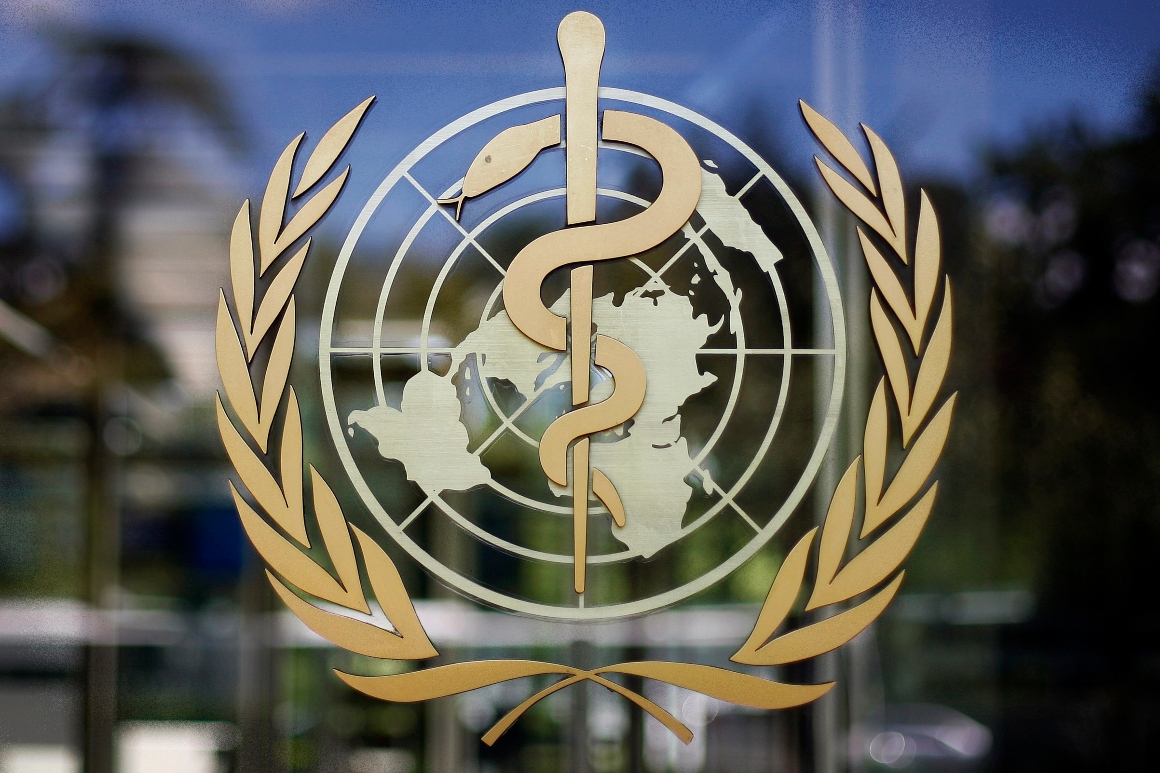
The Biden administration wants the World Health Organization to improve global equity in the next public health emergency by pushing manufacturers to voluntarily share their products and technology, according to a document drafted by the Department of Health and Human Services and obtained by POLITICO.
Biden administration officials coordinating with a WHO group focusing on preparedness in health emergencies wrote the paper, outlining ways to expand equity through a potential pandemic treaty or some other kind of global agreement.
The document — details of which were previously unknown — is a window into the Biden administration’s effort to ensure low- and middle-income countries have equal access to the data, vaccine and treatments needed to respond to the next pandemic. It lays out U.S. “targets” for improving equity, including widening access to vaccines by increasing manufacturing capacity worldwide — specifically through the “promotion and facilitation” of the voluntary licensing of the products, according to the paper.
“Identifying opportunities to promote equity in the response to health emergencies is a policy priority for the United States,” the paper reads. “We … must consider how to tailor approaches to address underlying issues necessary to enhance equity in preparing for and responding to the next pandemic …”
In recent weeks, WHO member state representatives have ramped up their discussions of what topics to include in a potential treaty negotiation. But the Biden administration, led by officials from HHS, has said little publicly about how it is approaching the WHO talks and what it is pursuing behind the scenes.
The paper, created for the Working Group on Strengthening WHO Preparedness and Response to Health Emergencies, lays out ideas for not only greater manufacturing capacity of the products but also increased sharing of genomic sequencing and pathogen data as well as purchasing agreements and the liability protection language included in those contracts.
If the proposals are adopted, they could significantly enhance how dozens of low- and middle-income countries respond to the next global health emergency.
HHS declined to comment. But Loyce Pace, the department's assistant secretary for global affairs who is leading the U.S. talks at the WHO, told reporters in Geneva last month that the U.S. was still trying to figure out how best to approach the equity question, broadly.
“It's clear to us that an important question that needs to be addressed through any instrument is the question of equity. How that happens, the approach we take … is something that we need to discuss with member states,” Pace said. “We are just as anxious as anyone to really start to build that out.”
The WHO process of preparing for the treaty discussions has taken months. But in the coming months, members of the main group overseeing the treaty’s deliberations are expected to meet and finalize which elements to include in a potential international agreement.
In the lead-up to those meetings, Biden administration officials are holding talks with WHO member state representatives about topics and language it may want to include.
According to the document obtained by POLITICO, the administration believes greater equity could be achieved if manufacturers voluntarily licensed and transferred their technology — steps companies across the world, including U.S. vaccine makers, refused to do during the Covid-19 pandemic.
The paper says that to strengthen the organization’s preparedness and response to health emergencies, the WHO should promote and facilitate the “voluntary licensing of critical public health response products by manufacturers on mutually agreed terms, including the voluntary transfer of technology and know-how on such terms.”
The U.S. is also pushing for the “promotion of more timely and equitable access to public health response technologies originally developed by government entities,” including through non-exclusive voluntary licensing, according to the paper.
In recent weeks — two years after the start of the pandemic — vaccine makers have taken steps on both of these fronts. For example, earlier this month, U.S. drug maker Moderna said it would extend its 2020 decision not to enforce Covid-related patents for the 92 countries that are a part of the COVAX vaccine distribution mechanism. The company also said it would share its technology with outside researchers and academics.
Still, global health advocates are leaning on the WHO to do more to persuade the companies to share their technology and to license their products in another public health emergency.
The U.S. also sees indemnification language in contracts for things like vaccines and therapeutics as well as a lack of transparency around purchasing agreements as major roadblocks to improving equity, the paper said.
It’s unclear from the paper exactly what language the U.S. will propose in its discussions around amendments to the drafting of a pandemic treaty. But it’s clear the Biden administration is focused on confronting the equity issue by addressing long-standing obstacles to low- and middle-income countries obtaining the necessary medical tools to fight a public health emergency.
“There are tweaks or other improvements we could make to those existing mechanisms, alongside looking towards something longer term like an international instrument,” Pace said in the briefing last month. “It is our hope that in making improvements … we can solve some of these problems like transparency, accountability, obviously, the sharing or availability of data.”
----------------------------------------
By: Erin Banco
Title: U.S. pushes for more global sharing of health tech in next pandemic
Sourced From: www.politico.com/news/2022/03/17/u-s-global-health-tech-sharing-next-pandemic-00017977
Published Date: Thu, 17 Mar 2022 03:30:00 EST
Did you miss our previous article...
https://consumernewsnetwork.com/politics-us/expanding-the-child-tax-credit-creates-a-refund-roller-coaster






